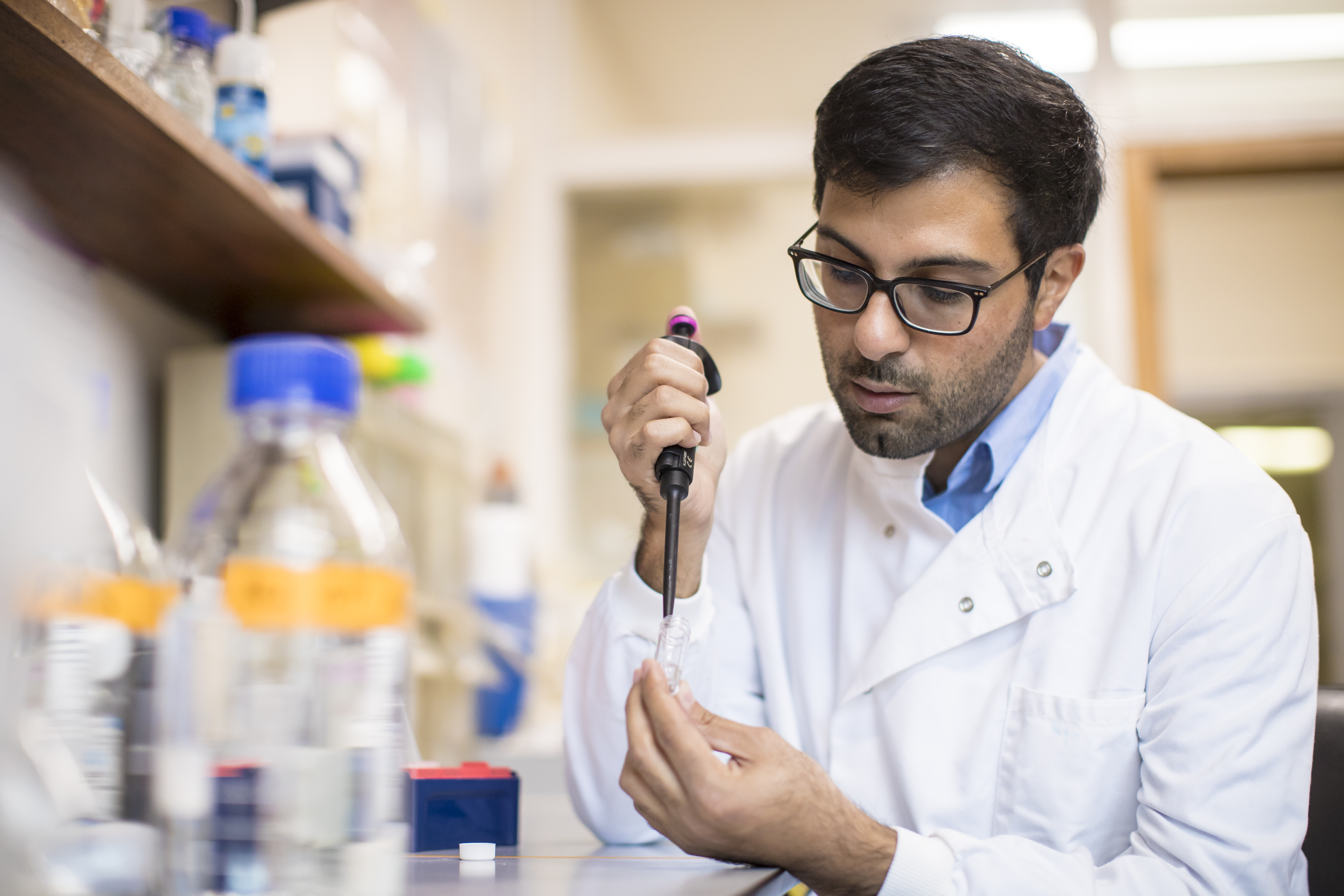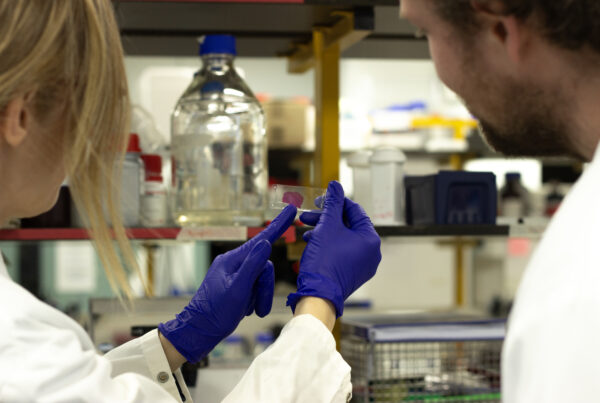New research has identified a genetic variant which determines how quickly the neurodegenerative condition Progressive Supranuclear Palsy (PSP) progresses, once symptoms begin.
The genetic variant relates to a gene called LRRK2. This gene has previously been linked to the risk of developing Parkinson’s Disease, so this new finding also suggests that there is a genetic link between the two conditions.
The research study is being led by Dr Ed Jabbari and Professor Huw Morris at UCL and involves just over 1000 PSP patients, including those taking part in the PSPA-funded PROSPECT study. Dr Jabbari was funded by a PSPA clinical research fellowship and by the Medical Research Council.
The study found PSP patients who carry one version of the LRRK2 genetic variant were more likely to progress slowly, whereas, patients who carried the less common version of the genetic variant, progressed more quickly.
Dr Wendy Edwards, PSPA Research Manager, said: “Identifying the genetic variant which determines the speed at which PSP progresses is a major development in our fight against PSP & CBD. We’re keen to see what the next steps of the study will bring and how it will lead to targeted treatments for the underlying causes of the conditions.”
Dr Ed Jabbari, said: “While more research needs to be done, this finding opens the potential to target LRRK2 in future clinical trials as a treatment that may slow down PSP in its tracks.”
Next steps for the research, will include working out exactly how LRRK2 affects the rate of progression in PSP, and potentially related tauopathies such as Corticobasal Degeneration (CBD), with a number of potential mechanisms currently under investigation.
To read the paper in full, please visit http://www.thelancet.com/journals/laneur/article/PIIS1474-4422(20)30394-X/fulltext





